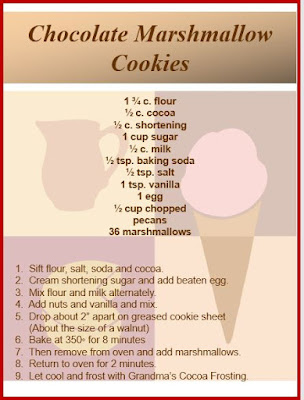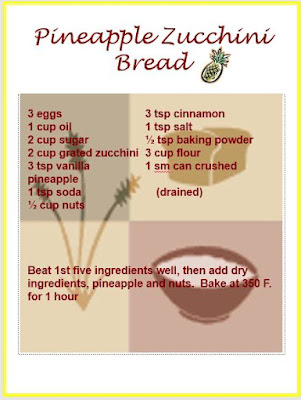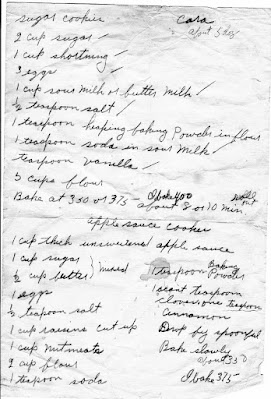Monday, April 10, 2023
Wednesday, April 5, 2023
Wednesday, February 15, 2023
Saturday, February 4, 2023
DNA Ethnicity Estimates, or Why do they keep saying I’m Scandinavian?
I am not usually an early adopter. In fact, my middle name could very well be Cautious, with a capital “C.” I will research an expenditure, an acquisition, or an impending experience until I have become a walking encyclopedia on my latest interest. For most people this would suck the joy out of the venture, but for me it is a source of added pleasure. Insane, right?
Occasionally, however, the “Frenzy Fairy” will hit me with
her pixie dust, and I will plunge into something without so much as a backward
glance. That is my only explanation of
why, in 2012, when I received the email from Ancestry about being a beta tester
for their new DNA product, I signed up immediately. Well,
that and the fact it was only going to cost me $9.99 for shipping. (Don’t worry, Ancestry has more than made
bank from me with that little investment.)
So, I spat into the tube and waited. At the time, I had been working on my family history for about a decade.
As I was digitally rummaging to see if I
had the original screenshot of their ethnicity predictions, I found my own
prediction of what I thought the results would be.
My predictions were:
73% Central European (All that German ancestry, plus some
Swiss, Dutch and a wee bit of French)
25% British Isles
(English and Irish)
1% Native American
1% African American
Okay, the final two were a stretch, but one could always
hope.
Wait! Where were they
getting the Scandinavian ethnicity, or the Southern European?
I asked my mom to do the test, so I could see where these
regions were coming from.
Um, mom pretty much had the Ancestry I thought I should
have. Shouldn’t she and I at least be
half a match with our ethnicities? I looked quickly to see what relationship
they had assigned to us. Okay, I could
relax, we were parent and child.
At the end of 2013, a new estimate for ethnicity came out
from Ancestry.
 |
33% Eastern Europe? Mom only had 3% Eastern Europe with this update, so that meant it came from Dad’s side of the family. Dad’s mother was 100% German, and there was no Slavic ancestry to be found in the rest of his family tree. So, I took a second look at his German ancestors.
To my surprise, I found that before Germans
settled in the area near the Baltic Sea, two Western Slavic tribes had lived in
the region. The two groups had
intermingled and more importantly, intermarried. Up until 1795, the very
church where my ancestors had worshipped had a service given in a Slavic
language. Ancestry had pointed out a part of my ethnic history that I hadn’t
even known existed. I still couldn’t
account for the Scandinavian heritage.
Of course, Ancestry has had many updates since. On one update, I was happy to see Welsh
listed among my ethnic roots. The next
one, the Welsh was gone from my results, and my brother suddenly found a bit of
Welsh in his.
Below are my latest ethnicity estimates from three different vendors.
ANCESTRY
They don’t agree on much except that I still have that darn Scandinavian in my estimates.
Each vendor uses their own reference populations. They each have their own procedures that ultimately become their estimate of your personal ethnicity. Family Tree and Ancestry have white papers explaining exactly what is involved in making estimates. Remember, if a portion of your DNA does not fit perfectly into one of their identified regions, that bit of DNA will be put into an ethnicity that it most closely matches.
My point is that you do not necessarily need to panic if your results do not match your expectations, or even your own family members. There could be valid reasons. As Ancestry says, “It’s not an exact science.” However, if your DNA matches are not what you expect, then there could be an issue. Ancestry has prepared a page to go over those issues along with links that may help. That page is here.
As for my Scandinavian mystery, there were Viking settlements in England, Ireland, along the Baltic coast, some parts of Central Europe, into Russia, and as far south as present-day Kyiv. My ancestors lived in many of those regions. Maybe the answer to the mystery is this: I have Viking DNA that is still circulating in my genes a thousand years after the fact. To that I say, “SKÅL!”
Sources:
1. Ancestry
Ethnicity Results, www.Ancestry.com, Accessed 18 June 2012.
2. Ancestry
Ethnicity Results, www.Ancestry.com, Accessed 29 March 2013.
3. Ancestry
Ethnicity Results, www.Ancestry.com, Accessed 3 Oct 2013.
4. Kashubia,
Home of the Baltic Slavs – written originally in Polish by Jaroslaw Ellwart,
translated to German by Peter Oliver Loew, and abridged and supplemented English
translation by John M. Hingst and Liesel Herchenroether Hingst, 2000. PDF
version Accessed 20 July 2020.
5. Ancestry
Ethnicity Results, www.Ancestry.com, Accessed 27 Dec 2022.
6. Family
Tree Ethnicity Results, www.Familytreedna.com, Accessed 28 Dec 2022.
7. My
Heritage Ethnicity Results, www.Myheritage.com, Accessed 28 Dec 2022.
8. AncestryDNA®
White Papers, https://support.ancestry.com/s/article/AncestryDNA-White-Papers,
Accessed 28 Dec 2022.
9. myOrigins
3.0 White Paper, https://blog.familytreedna.com/myorigins-3-0-white-paper/,
Accessed 28 Dec. 2022.
10. Discover
more about DNA matches, https://www.ancestry.com/c/dna/unexpected-dna-matches,
Accessed 4 Feb 2023.
11. Britannica,
The Editors of Encyclopaedia. "Viking". Encyclopedia Britannica, 1
Dec. 2022, https://www.britannica.com/topic/Viking-people, Accessed 27 Dec 2022.
© 4 February 2023, Desktop Genealogist Unplugged, Teresa L.
Snyder
Monday, January 16, 2023
Deep Within My Genes: In My Grandmother's Kitchen
Today is my paternal grandmother’s birthday. Depending on whether you believe her marriage certificate or her baptismal record, she would have been 114 or 112. Both of my grandparents lied about their birthdates on their marriage license. In a previous blog post, A Question of Age, I covered this very subject. Spoiler alert, Grandpa had a good reason for his lie. Of Grandma’s lie, shoulder shrug, I have only unsatisfying speculation.
My children were 9, 12 and 15 when my grandmother died. I don’t think many children are lucky enough to have a relationship with a great grandmother, but my children had that privilege. We still talk and chuckle about “grandma stories.”
My grandmother was a good cook and an even better
baker. When she died, my mother found
herself the recipient of a basket with Grandma’s recipes. When my daughter married, I made a loose-leaf
notebook for her entitled, “In My Grandmother’s Kitchen” and put together some of our
favorite “Grandma Recipes.” Since I have
already written a birthday post about my Grandmother previously (My Grandmother, Anna), I thought this time I would post recipes from
the book.
My daughter was partial to the Zucchini Bread.
My grandmother was not the soft, cuddly kind of grandmother. I don’t remember her ever hugging me or
telling me that she loved me. Yet, I
always felt her love. It came through in
the tiniest of moments, the reams of advice (often unsolicited), the little
things she did to lighten a single mother’s load, the sweet taste of a favorite
cookie dropped off just when it was needed – that was my grandmother.
Happy Birthday, Grandma.
Your eldest granddaughter still misses you.
Wednesday, December 21, 2022
Thursday, December 1, 2022
Of Mothers and Daughters and Dinner Parties — Part II Redux
Sometimes, when you throw a question out into the universe,
you get a response. In January of 2008,
I asked a series of questions for the Carnival of Genealogy. Though my paternal grandmother, Anna, was born
in the United States, all her ancestors were born in the Stolp district of
Pomerania. At the time, because I didn’t
(and still don’t) speak German, finding the information seemed head bangingly
impossible. So, it’s fifteen years later, and guess what? Some of my questions now have answers. I am reposting that January 2008 entry along
with my found answers.
Of Mothers and Daughters and Dinner Parties — Part II
The 41st edition of the Carnival of Genealogy asks the
question: If you could have dinner with four of your ancestors who would they
be and why?
When my great-grandmother, Emma Gleffe Schröder, first set
sail for the United States in 1906, she knew that she would probably never see
her father, brother and sister again. It's not known if Emma's mother, Pauline
Gleffe, was alive at the time of Emma's departure, but in the German letters
that were saved, Pauline is not mentioned.
Emma arrived at Ellis Island with her husband, Leo, and
their two sons, Wilhelm (Willy) and Max, on April 1, 1906. Speaking no English
and being sponsored by Leo's brother-in-law, Karl Kollat, Emma and Leo settled
on the outskirts of Clyde, Ohio. There they found other German-speaking
families, and just as important to Emma, a Lutheran Church that she could walk
to each week, to listen to the German service.
For my second dinner party, I would choose Emma and her
mother, Pauline, as the last two ancestors to share a meal with me. Though I
would love to see the land where Emma grew up and where Pauline lived her life,
I know exactly when and where this dinner party would take place.
There are very few things my grandmother told me about her
mother, Emma. But the one thing she did say was that her mother was a good
cook. My dad has also told me the same thing of the grandmother that he called,
“his buddy.” So I am inviting myself to Sunday dinner at the Schröder house in
Clyde, and Emma and her mother are doing the cooking.
Once they get used to the idea of being together again, I
can imagine the two of them clucking and speaking in German, with my
great-grandmother translating for me. I would be madly scribbling down recipes
and notes and helping with whatever menial chores the two women would assign
me.
I WOULD ASK PAULINE (with Emma translating)
What date were you born?
2 Oct 1849 at Klein Gansen,
Kr. Stolp, Pommern, Prussia (Full Name:
Pauline Albertine Mathilde Gleffe) [i]
What are the names of your parents?
Friedrich Wilhelm Gleffe and
Johanne Helene Wilhelmine Bujack[ii][iii][iv]
What date were they born?
Friedrich Wilhelm Gleffe was
born 20 June 1815 in Klein Gansen, Kr. Stolp, Pommern, Prussia[v]
Johanne Helene Wilhelmine
(she went by Wilhelmine) was born 22 Sept 1819, Klein Gansen, Kr. Stolp,
Pommern, Prussia[vi]
What is your husband's full name and date of birth?
Wilhelm Gottlieb Gliffe DOB: 17 January 1852 Goschen, Kr. Stolp,
Pommern, Prussia[vii]
What are the names of his parents?
Friedrich Gliffe (sometimes
Gleffe) and Henriette Bastubbe[viii]
When and where were you married?
Do you remember your grandparents?
What were there names?
Gottfried Friedrich Gleffe
(he went by Friedrich) and Katharina Anna Zoschke[ix]
Christian Friedrich Bujack
and Dorothea Luise Jahnke[x]
Tell me a story about your grandparents.
Tell me a story about Emma when she was a little girl.
I WOULD ASK EMMA
Who were your paternal grandparents?
Friedrich Gliffe and
Henriette Bastubbe[xi]
What do you remember of them?
What do you miss about your homeland?
Who was Albert Tuschy and how are the Tuschys related to the
Schröder family?
Albert Tuschy was the
brother-in-law to Emma’s husband, Leo Schröder (Schrader in the U.S.) He was married to Leo’s sister
Bertha Eva Adeline.[xii]
Albert acted as informant in
the death of his mother-in-law, Caroline Wilhelmine Quetschke Schröder
(10 April 1895, Gaffert, Kr. Stolp, Pommern, Germany)[xiii]
Albert also acted as informant in the death of his
father-in-law, Wilhelm Heinrich Schröder (4 March 1917, Budow, Kr. Stolp, Pommern,
Germany.)[xiv]
Tell me about your in-laws, Wilhelm and Karoline Quetschke
Schröder.
What was the trip to America like?
What is a favorite memory you have of your mother?
What is a favorite memory you have of your father?
Tell me a story about your daughter Anna as a child.
What is your recipe for your Christmas log roll?
I would give them some private time to talk, to cry and to
laugh. Then later, sometime in the afternoon, Emma's daughter Anna would stop
and drop off her 7-year-old son. For I have chosen to have my dinner party the
exact summer that my father stayed with his grandparents during the week.
[i]
Evangelische Kirche Budow Taufen (Evangelical Chuch of Budow, Baptisms), 1849
No. 121
[ii]
Ibid
[iii] Evangelische
Kirche Budow Taufen, for Augustine Philippine Franziska Maria, 1852 No. 20
[iv]
Ahnenpaß (Ancestral Passport) of
Margarete Gleffe, from the Research of Jörg Glewwe, Nov. 2020
[v] Ibid
[vi] Ibid
[vii] Evangelische
Kirche Budow Taufen, 1852 No. 5
[viii]
Ibid
[ix] Ahnenpaß of Margarete Gleffe, from the
Research of Jörg Glewwe, Nov. 2020
[x] Ibid
[xi] Evangelische Kirche Budow Taufen, 1852 No. 5
[xii] Standesamt
Budow Heiraten (Marriage Record Civil Registry for Budow) , 1887 No. 3
[xiii]
Standesamt Budow Tote (Death Record Civil Registry for Budow), 1895 No. 16
[xiv] Standesamt
Budow Tote, 1917 No. 7
©30 Jan 2008 & revised 1 Dec 2022, Desktop Genealogist Unplugged, Teresa L. Snyder

Terry
Labels
- 7 Days 7 Requests (8)
- Airplane Crash (1)
- Akron-Summit County Public Library (1)
- Alltop (1)
- Amish (1)
- Ancestry.com (8)
- Anniversary (1)
- Aunt Marion (1)
- Autumn (1)
- Best (1)
- Birthday (2)
- Black History Month (1)
- Blog Action Day (1)
- Blog Anniversary (1)
- Blogging (2)
- Bridge (1)
- Camera (1)
- Carn (1)
- Carnival of Central and Eastern European Genealogy (3)
- Carnival of Genealogy (10)
- Caroling (2)
- Catherine Good (1)
- Cemetery (2)
- Census (3)
- Childhood (1)
- Christmas (5)
- Civil War (1)
- COG (9)
- Comments (1)
- Cope (1)
- Covered Bridges (2)
- Dad (3)
- Dancing (1)
- Daniel Schumacher (1)
- Daughter (1)
- Dear Myrt (1)
- Death Certificates (2)
- Deep Fried Kudzu (1)
- Deep Within My Genes (1)
- Enemy Alient Registration (1)
- Eric (1)
- Family (1)
- Family Search (2)
- Family Search Labs (3)
- Father's Day (1)
- Feasel (2)
- Feaselburg (1)
- FHC (1)
- Flat Rock Cemetery (2)
- Flat Rock Church of the Brethren (1)
- footnote Maven (1)
- footnoteMaven (1)
- For My Sloan Cousins (38)
- For Sarah (13)
- Free Colored Persons (1)
- Genea-Musings (1)
- Geneabloggers (1)
- Geneabloggers Picnic (1)
- German Roots (2)
- Getting to Know (1)
- Gleffe (5)
- Good Family (1)
- Google Earth (1)
- Granddaughter (1)
- Grandma (3)
- Grandmother (1)
- Grandparents (6)
- Grandson (6)
- Graveyard Rabbit (1)
- Happy Dance (1)
- Heather (2)
- Hill Country of Monroe County (5)
- Hoy (1)
- Ice Storm (1)
- Immigration Files (3)
- Indian Mound (1)
- Jacobus (2)
- Joy (1)
- Kin Hunters (10)
- Lake Erie (1)
- Land (1)
- Library of Virginia (1)
- Little Sister (1)
- Love (1)
- Lovely Blog (1)
- Lynch (2)
- Markers (1)
- Mary Shirkey (2)
- Mary Travers (1)
- Matt Harding (1)
- Maya Angelou (1)
- McQuillin (1)
- Mélange (1)
- Meme (2)
- Michael (1)
- Mixed Race (1)
- Mojo (1)
- Mom (4)
- Mumbai (1)
- Mustaches (1)
- My Christmas Past (3)
- My warped humor (1)
- NARA (4)
- Nephew (1)
- New Jersey (1)
- News-Messenger (1)
- Ninja Gardener (1)
- Northern Neck Land Records (1)
- November (1)
- OCGS (1)
- Ohio Appalachia (1)
- Organized (1)
- Pension File Stories (3)
- Photographs (1)
- Poetry (1)
- Pomerania (5)
- Positive Thinking (6)
- Recipes (1)
- Resolutions (1)
- Roots Television (1)
- Sandy (1)
- Santa (1)
- Schrader (5)
- Scrabble (1)
- Seneca County (11)
- Shades of the Departed (1)
- Siblings (1)
- Slavery (1)
- Smathers (6)
- Smile for the Camera (6)
- Snow (1)
- Southern Ohio (1)
- Stepson (1)
- Super Power (1)
- Terry's Life (50)
- Thacker (4)
- The hubs (8)
- Tuschy (1)
- TV (1)
- USCIS (3)
- Vinton County (2)
- Virginia (1)
- Von Malottki (1)
- Voting (1)
- Wal-Mart (1)
- Wedding (2)
- Where Were You (2)
- Windows 7 (1)
- Women's Rights (1)
- Wordless Wednesday (5)


.jpg)
















